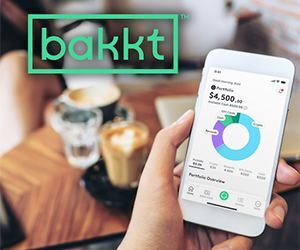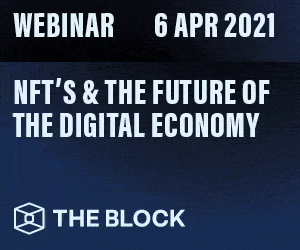
This week’s wNews digs into Peter Thiel’s recent comments surrounding Bitcoin’s threat to the U.S. dollar and how this plays into China’s hands.
Thiel has often made headlines throughout his career. A master of the inflammatory soundbite, the PayPal founder again took the media industry by storm. During a roundtable discussion at the Richard Nixon Seminar, he and others discussed Big Tech and China as the two were related to American national security matters.
A notable Bitcoin advocate, Thiel also described the leading digital asset as a “financial weapon” that China could use against the great red, white, and blue. Many were quick to call it the end of the entrepreneur’s pro-crypto stance. Others chalked it up to another 4D chess move from the grandmaster.
Bears overran BTC on the day, but the leading cryptocurrency is now inches from all-time highs. Ethereum has done much of the same, officially crossing its local high today. Several conflicting indicators now suggest several narratives are at play for both assets.
Finally, this week’s crypto to-do list merges two of the hottest trends: DeFi and Layer 2.
All that and more, below.
Thiel’s Breach of Bitcoin Maximalism
Peter Thiel has long been an outspoken advocate of all things privacy, liberty, and free markets. It’s thus only natural that the entrepreneur eventually discovered Bitcoin. His comments on Apr.7, however, suggested that perhaps his fervor for the asset is waning.
At the Richard Nixon Seminar, he said:
“Even though I’m a pro-crypto, pro-Bitcoin maximalist person, I do wonder whether if at this point Bitcoin should also be thought of in part as a Chinese financial weapon against the U.S.”
The context of this quote is also crucial.
Various former government officials dotted the audience, including Mike Pompeo and Robert O’Brien. Both officials were responsible for national security in the United States under Donald Trump. Indeed, both Pompeo and O’Brien had been responsible for building the former President’s stance on China.
These days the standoff with the world’s second-largest economy has only gotten tenser. On Apr. 9, the U.S. deployed various tactical warships and amphibious military vehicles into the South China Sea.
In the latest development, 44 Chinese vessels continue to occupy the Whitsun Reef not far from the Spratly Islands. The Philippines’ defense secretary, Delfin Lorenzana, has been the primary bell-ringer, indicating that these ships “should be on their way out.”
The alarms engage larger, more powerful military forces, including the United States, European nations, and other larger Asian countries, to assist. Often these bouts end in a stalemate, but the stakes are still high.
One slight miscommunication can cause a diplomatic meltdown between any countries involved.
Thus, with a physical conflict top of mind, Thiel has also introduced a worrisome “financial weapon” to the mix. He added:
“[Bitcoin] threatens fiat money, but it especially threatens the U.S. dollar. [If] China’s long Bitcoin, perhaps from a geopolitical perspective, the U.S. should be asking some tougher questions about exactly how that works.”
With this, the maximalists reclaim Thiel to their ranks.
Many have long-touted Bitcoin’s ability to overthrow the dollar and that doing so would never be easy. Now, Thiel has confirmed what that upward battle will really look like.
Market Action: Bitcoin (BTC)
In the first quarter, Bitcoin’s price doubled from $30,000 to $60,000 this year. It reached its peak earlier in March and has been in consolidation since.
Around the end of March, the selling pressure likely arose from investors booking Q1 profits and rebalancing their portfolios.
Still, the market remains bullish due to progress around the new asset class. Paolo Ardoino, CTO at Bitfinex, told Crypto Briefing:
“As Bitcoin hovers near the$60,000 mark, the fixation on price is no longer so pervasive. Bitcoin continues to win wider acceptance as an asset that is here to stay as corporations across the globe quietly explore how to integrate Bitcoin and cryptocurrencies into their business models.”
A trader can view the short-term (4-hour) BTC price action depending on either perception: bullish or bearish.
Organically, the price has been forming higher lows; however, it has faced a lot of resistance around $60,000. Investors should consider both perspectives.
First, bearish.
Bitcoin’s underlying price has formed a supporting trend with higher lows, and buyers may argue that the base head and shoulders pattern should be flatter.
The higher lows have been a sign of relief for the bull, indicating dip-buying action.
As the head and shoulders pattern threatens reversal, the ascending triangle points towards continuation.
Bitcoin’s price is slowly entering the thin resistance and support bands between $55,500 and $59,000. A breakout on either side of the band is expected to be explosive.
Traders must also be cautious of fake breakouts and wait for confirmation on the daily and weekly chart. Moreover, due to low liquidity during the weekends, the volatility could run higher in the next two days.
Bitcoin on-chain indicators have also entered the overbought region. The number of wallets in profit is currently at its all-time highs, suggesting that a long-term pullback is near.
The counterargument has been that the levels of indicators like HODL waves are below the peak during 2013 and 2017, raising the possibility that 2021 will be no different.
Market Action: Ethereum (ETH)
While Bitcoin has failed to break above its local peak of $60,000, Ethereum’s native token ETH is looking forward to a second consecutive weekly close above its previous high of $1,936.
The funding rate for ETH perpetual contracts has cooled down, which also favors the bulls.
The futures derivatives market reflects the uncertainty around generational tops in the cryptocurrency market after an emphatic run above previous all-time highs.
Ether gained over 180% in Q1 and is up 20x from last year’s bottom after the stomach-churning crash in March 2020.
The next positive catalyst for ETH could come from additional institutional acceptance as a base layer for transactions, like VISA, or investment as a store of value.
Crypto To-Do List: Use Aave on Polygon
2021 has been a big year for Ethereum.
The entire ecosystem has seen rapid development, with the Ethereum suggesting that Proof-of-Stake could launch before the year is out. However, with gas fees already soaring along with the price of ETH, several rising scaling solutions have taken the spotlight of late.
Many of DeFi’s leading projects have actively looked at tackling the scaling problem, with many announcing plans to launch on Layer 2 in recent months. Synthetix went live on Optimism, a highly-anticipated Optimistic Rollup solution. Uniswap announced it would build on Optimism after launching V3 too.
Aave, meanwhile, recently launched on Polygon.
Previously known as Matic, Polygon uses Plasma and a sidechain with its own Proof-of-Stake mechanism to scale Ethereum. It also plans to add ZK-Rollups, Optimistic Rollups, and standalone chains in the future. Running traffic away from the Ethereum mainnet means it can process transactions at high speed and low cost.
Aave’s expansion to the Polygon network should help make DeFi more accessible to the masses. Plus, it’s already available now.
The following step-by-step guide details the process for depositing and borrowing funds from Aave:
Once funds are sent to Polygon, each transaction on the network should process at high speed. It’s also very cost-effective to use the network: transactions cost the equivalent of fractions of a penny.
As more projects start to look at scaling solutions for Ethereum, DeFi should become more accessible for regular users across the board. Thanks to Aave’s Polygon market, lending and borrowing on the network are already possible at a low cost than Ethereum mainnet.
Nevertheless, many of the same risks as using DeFi on Ethereum apply: loans can result in liquidations. Caution is advised.
Disclosure: At the time of writing, some of the authors of this feature had exposure to ETH, AAVE, SNX, MATIC BTC, UNI, and POLS.















